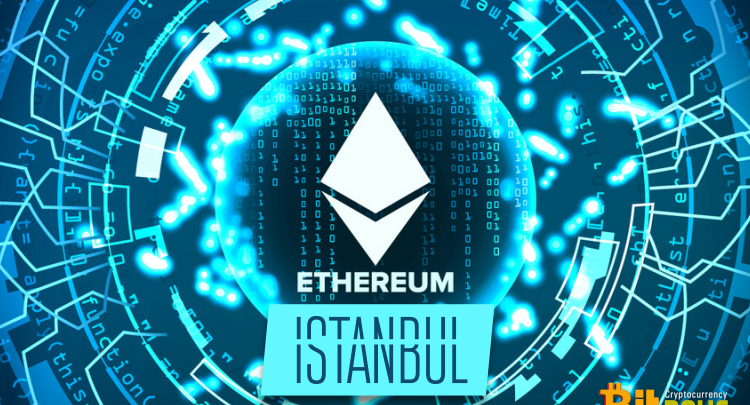
Ethereum Network To Conduct Istanbul Hard Fork

The planned Istanbul hard fork on the Ethereum network has officially taken place. The update occurred on block # 9069000 on Sunday, December 8th.
The block on which the hard fork took place found the Chinese mining pool SparkPool.
The upgrade aimed to ensure Ethereum compatibility with Zcash cryptocurrency, increase the scalability of solutions based on zero-disclosure proof technology (SNARKs and STARKs), change the cost of gas for various operating codes (opcodes) in order to complicate spam blocks and increase the network’s resistance to DoS attacks.
As previously reported, most Parity and Geth clients were still not ready for this massive upgrade.
At the press time, the overall availability of the network was slightly less than 70%.
Istanbul EIP
EIP (Ethereum Improvement Proposals) – proposals for improving the Ethereum protocol, which are submitted for discussion by developers before each hard fork. In preparation for Istanbul, six such proposals were approved:
- EIP-152 – the proposal introduces a new precompiled contract that implements the compression function F used in the Blake2 cryptographic algorithm. The goal is to create interoperability between the Ethereum virtual machine (EVM) and Zcash or other cryptocurrencies based on the Equihash protocol.
- EIP-1108 – is aimed to reduce the precompiled cost of gas (fees for the implementation of smart contracts), which in turn will favorably affect the development of a number of solutions in the field of privacy and network scaling.
- EIP-1344 is a proposal that allows using a chain ID to prevent transaction replay attacks between different blockchains. Until now, there were no such clear specifications for setting the chain ID for a particular network, and everything was manually determined by the operators of the clients and communities of a particular network.
- EIP-1884 – this proposal is aimed at increasing the cost of gas for certain opcodes, which against the background of the rapid growth of the Ethereum network began to consume more resources (CPU, memory, etc.). According to the developers, in this way, it will be possible to achieve a better balance between gas consumption and resource consumption.
- EIP-2028 – the proposal is aimed at reducing the cost of gas when calling on-chain data from the current 68 units per byte to 16 units. This will increase network bandwidth, as more data can be placed in one block.
- EIP-2200 – offers a structured definition of gas metering changes for the SSTORE opcode. This will create additional opportunities for using contract storage systems, reducing unnecessary fees.
The second part of the upgrade (Berlin) is expected to happen before the end of June 2020. It should include proposals that require more time for testing, for example, EIP-1057, a controversial issue – a modified ProgPoW mining algorithm, aimed at reducing the influence of ASIC devices.
Ultimately, as the developers hope, upon completion of both parts of the upgrade, the Ethereum network will become faster, cheaper, and more scalable. They expect all this to be achieved without compromising the decentralization and flexibility of the network.
Source: en.bit.news





